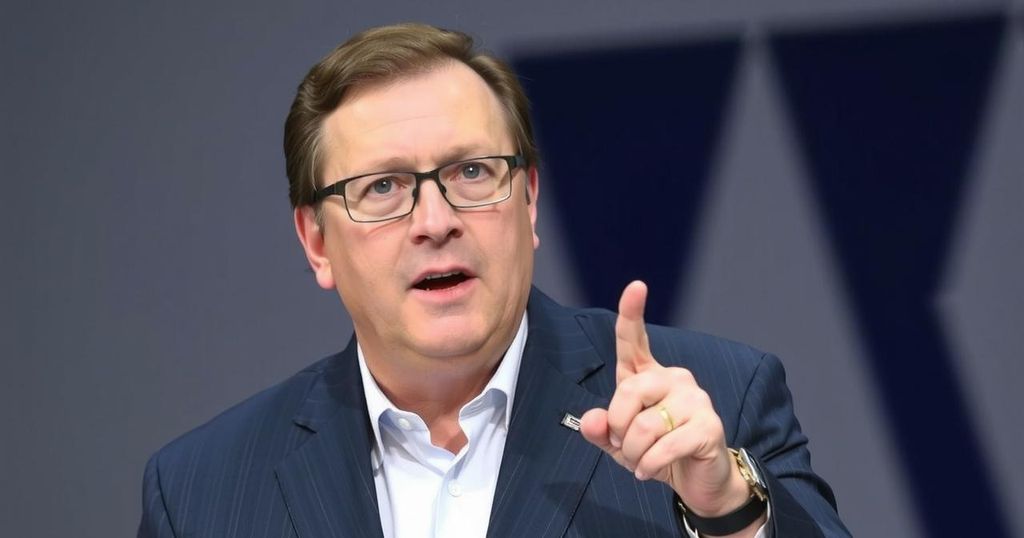Preliminary results suggest Zoran Milanovic, representing the opposition Social Democrats, will win a second term as Croatia’s President. With 50.1% of the votes against 22.3% for HDZ’s Dragan Primorac, Milanovic’s victory indicates a significant lead. The election reflects Croatia’s ongoing struggles with inflation and a labor shortage, as well as political tensions involving corruption and foreign policy decisions.
Zoran Milanovic, the candidate of the opposition Social Democrats, appears set to secure his second term as President of Croatia, according to preliminary results from the recent presidential election. With nearly 52 percent of polling stations reporting, Milanovic garnered 50.1 percent of the votes, significantly outpacing his nearest rival, Dragan Primorac of the ruling Croatian Democratic Union (HDZ), who received 22.3 percent.
An exit poll conducted by Ipsos further corroborated these preliminary figures, indicating Milanovic’s expected victory. About 3.8 million Croatian citizens were eligible to vote from a slate of eight candidates. Under the current electoral framework, a candidate must obtain a minimum of 50 percent of the votes to triumph outright and avoid a runoff election, which is scheduled to take place on January 12 if no candidate achieves a majority.
Throughout his five-year presidency, which will end on February 18, Milanovic, a former prime minister, has frequently found himself at odds with Prime Minister Andrej Plenkovic, particularly over matters of foreign and domestic policy. Milanovic has been a vocal critic of both the European Union and NATO concerning their actions regarding Ukraine. Although the president holds limited legislative power, particularly in terms of vetoing laws, he holds influence over foreign policy and national security matters.
Despite employing a populist approach, many perceive Milanovic as a necessary counterweight to the HDZ’s dominance in the government, which has seen numerous ministers resign amid corruption scandals. The election timing coincides with pressing issues in Croatia, such as rising inflation and a labor market shortage. In his previous campaign, Milanovic emphasized tolerance and liberal values, winning the presidency in 2020.
While condemning Russia’s military invasion of Ukraine, Milanovic has expressed skepticism towards Western military support for the Ukrainian government, drawing accusations of pro-Russian sentiments from Plenkovic. Responding to such claims, Milanovic asserted, “As long as I am president, no Croatian soldier will fight in somebody else’s wars.”
Zoran Milanovic’s incumbent presidency represents a significant aspect of Croatia’s political landscape, notably influencing both domestic and foreign policies. His leadership is characterized by a blend of liberal and populist rhetoric, creating a counterbalance to the ruling HDZ party, which faces challenges due to corruption allegations among its members. The election process invokes both political tension and civic engagement, reflecting the complexities of a nation grappling with economic pressures and geopolitical challenges, particularly related to Ukraine’s situation. The ceremonial role of the presidency in Croatia, alongside its potential to shape critical policy areas, underscores the importance of this electoral event. The outcomes may influence not only the political trajectory of Croatia but also its standing within international alliances, including the EU and NATO.
In conclusion, early election results indicate that Zoran Milanovic is poised to win a second presidential term, reflecting the electorate’s inclination towards his leadership amidst challenges faced by the HDZ. His anticipated victory comes at a critical juncture for Croatia, where issues of inflation, labor shortages, and political scandals loom large. As Milanovic promises to maintain Croatia’s avoidance of foreign military entanglements, his presidency may steer the nation through a complex landscape influenced by both domestic priorities and international affairs.
Original Source: www.aljazeera.com






